

Established in the year of 1977 and 1983 of master and doctorate programs, respectively, the graduate school at the Department of Electrical Engineering has been one of the most prestigious postgraduate institutes in Taiwan. Our department strives to provide graduate studies with research-oriented inter-disciplinary excellence. Currently, there are two research groups of the master and doctorate programs in the department : Power Engineering Group and Circuits/Systems Group.
Faculty:5 Full-Time Teachers
Prof. Chang-Ming Liaw
Prof. Tsai-Fu Wu
Prof. Chia-Chi Chu
Prof. Yuan-Chih Chang
Prof. Yu-Chen Su
Postgraduate students:
More than 20 postgraduate students are being recruited in the research group each year.
The main research areas and topics of this group include:
►Smart Grid
►Power Electronics
►Advanced Power Systems
►Renewable Energy
►Solar Photovoltaic Systems
List of labs in the group:
Electric Machine Control Laboratory
Prof. Chang-Ming Liaw
Electric Machine Control Laboratory
The research topics of electric machine control laboratory are emphasized on electric motor drives, power electronic converter and practical electric machine controls. To enhance the operation characteristic of green energy systems, some performance enhancement studies about the wind generators, flywheel/battery/supercapacitor hybrid storage systems, interface converters, switch-mode rectifiers and load inverters are also conducted. Moreover, for effectively utilizing the electric vehicle (EV) on-board battery and reducing the fossil energy consumption, some EV motor drives are developed. And the related G2V/V2H/V2G and V2M/M2V operations are explored.
The detailed research topics are summarized below:
1. Motor drive system:
l BDCM or PMSM drive system.
l Synchronous reluctance motor drive system.
l Switched reluctance motor/generator drive system.
l Induction motor drive system.
l Motor drive system applications: EV, air-conditioner, fan, flywheel energy storage system, etc.
2. Power electronic converter:
l Inverter and its control (single-phase, three-phase, parallel).
l PFC converters (switch-mode rectifier).
l Soft-switching converters.
l EV drive system, charger and charging control, UPS discharging control.
l Practical and advance controls.
l Switching power supply.
l Active power filter.
l Photovoltaic cell and fuel cell powered auxiliary power units (APU).
l USB cellular phone Li-ion battery charger.
l Microgrid and its constituted power electronic converters.
l Energy storage system (flywheel, battery, supercapacitor).
l Others
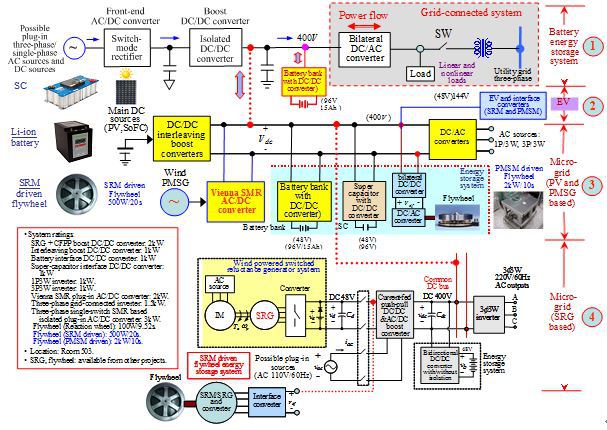
Elegant Power Electronics Applied Research Laboratory (EPEARL)
Prof. Tsai-Fu Wu
Elegant Power Electronic Applied Research Laboratory (EPEARL) is a well organized and equipped research laboratory at National Tsing Hua University, Hsinchu, Taiwan. We have accumulated a lot of system-integration experiences both in teaching and research aspects, and we do believe they are worthy of further discussion and study for experienced people and new comers.
By tracing back to our former research, we can find that we have gone through many research topics. Currently, we are thinking what will be the next step in doing power electronics research. Additionally, we are thinking how to save energy and reduce carbon dioxides. In short, we have to move towards “elegancy”; i.e., we have to design and develop systems to have the features of multiple functions, high efficiency, long life span, low noise and light weight so as the resources in this planet can be optimally used, which yields high effectiveness and high durability. This in turn can reduce energy consumption while processing and manufacturing. How to achieve “elegancy” is a big issue or question. Before answering the question or proposing a feasible approach, let’s review the greatness of our creator. It is really amazing that a seed knows to grow a certain type of leaf, flower and fruit. Moreover, it can grow to be a huge tree. Human beings are another example. Their bodies, organs and circulatory systems are pretty sophisticated and elegant, which can fulfill many kinds of complex functions and achieve high durability. Thus, we might have to learn from the physiological phenomena and the behavior models of plants and animals, and we can find out answers to the pre-mentioned question.
From now on, “learning from and following up the nature” will be the main objective and target of EPEARL’s team members. In addition, keeping green planet and environmental reservation will be another top guideline of the EPEARL while doing research. We will try our best to run EPEARL to be a fascinating and attractive Lab. for people to work with. Here, we would like to sincerely invite dear friends to join EPEARL and to create a new power electronics research era.
EECS Building Roof
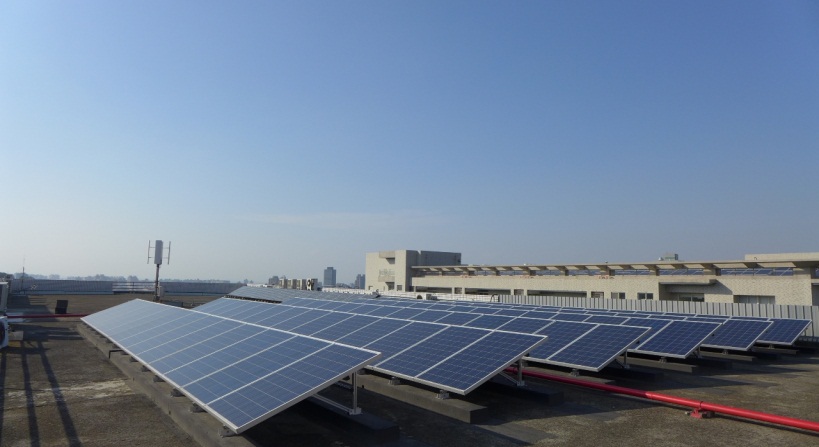
EECS Building Room 509
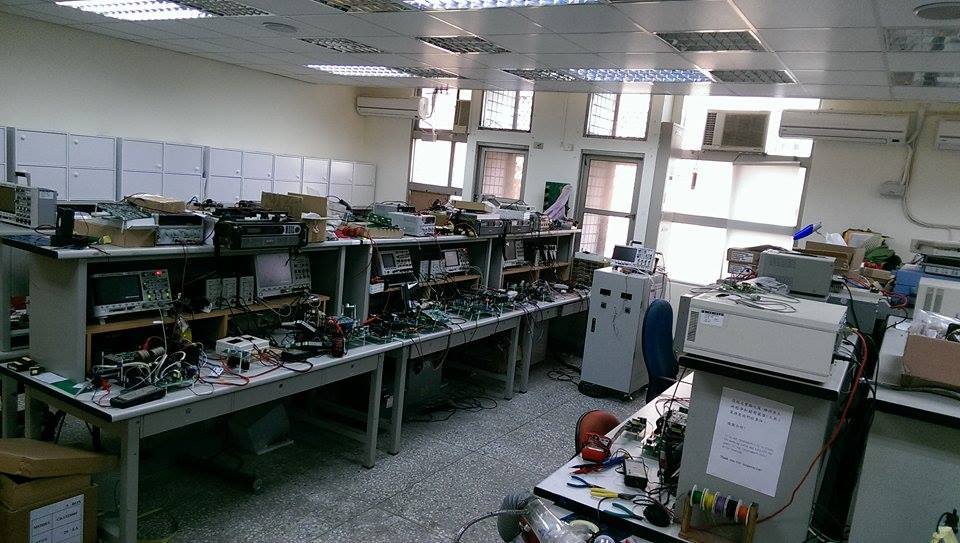
Prof. Chia-Chi Chu
The power grid is often challenged by load variations and fault events, which might lead to potential instability, voltage collapse and degraded power quality. The corresponding research includes
l Static voltage stability assessment software
l Load modeling of TaiPower system
l Voltage stability under wind power injections
l Online stability assessment combining wide-area measurement and energy management system
l Optimal placement of wide-area measurement units
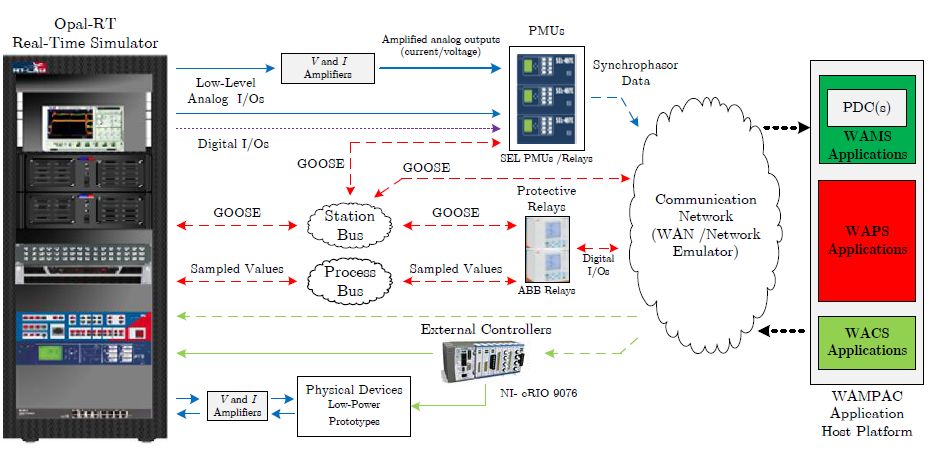
The distributed power generation and their interface converters in isolated micro-grids require auxiliary control mechanism to achieve desired power sharing. The corresponding research includes
l Multi-agent consensus-based droop control
l Droop control considering energy characteristics of renewable energy sources
l Consensus-based droop control for doubly-fed induction generators
Realizations of the proposed control include the hardware-in-loop simulations utilizing real-time simulators and development of experimental micro-grid platform.
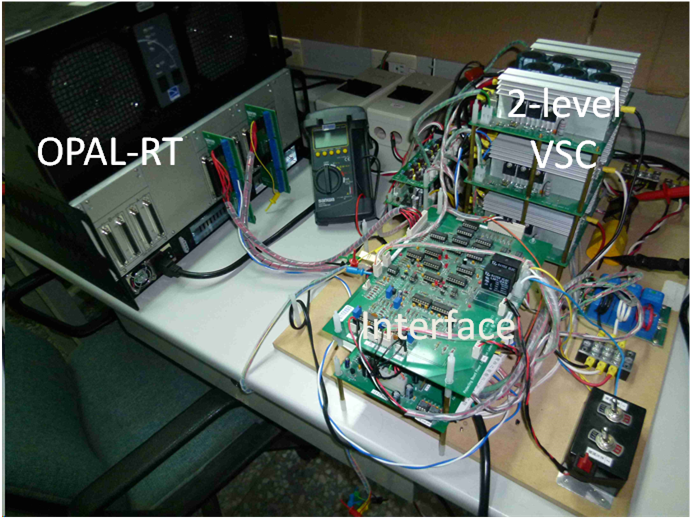
Prof. Chia-Chi Chu
In order to cope with the needs for efficient and intelligent operation for conventional power grids, the demonstrative micro-grid system was developed in NTHU campus under the supports of National Energy Program. Realistic issues when operating renewable energy generation and smart grids are studied accordingly. The system includes distributed generation units, bi-directional energy storage device, equivalent transmission lines, static switch for grid connection and protection relaying equipment. The development also includes phasor measurement units synchronized with GPS signal for accurate phasor information and corresponding analysis. To maintain the power quality and stable operation of the micro-grid, flexible alternating- current transmission systems including STATCOM and UPFC are also developed. Global stability of the compensated power grid can then be ensured by non-linear theory based control design.
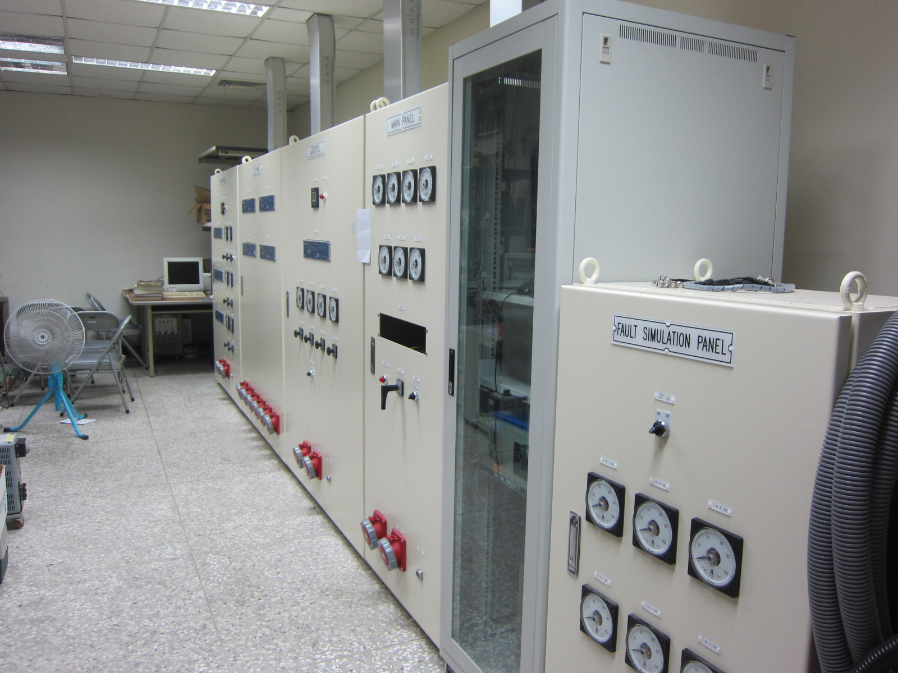
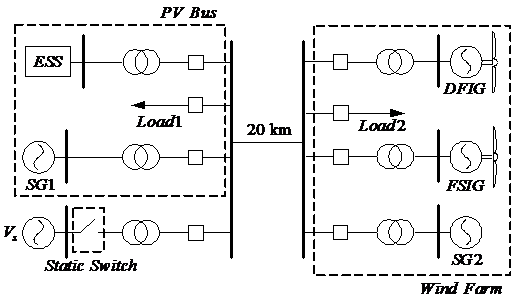
Prof. Yuan-Chih Chang
https://www.ee.nthu.edu.tw/ycchang/
Prof. Yu-Chen Su
https://scholar.google.com/citations?user=S4yqAaoAAAAJ&hl=zh-TW